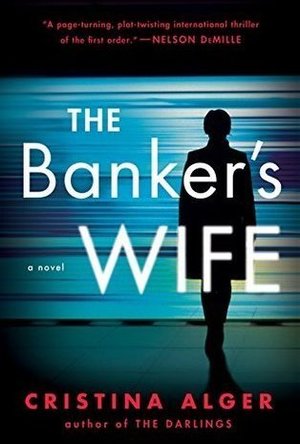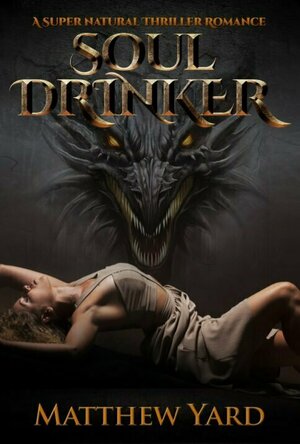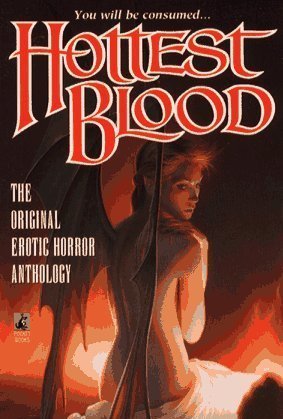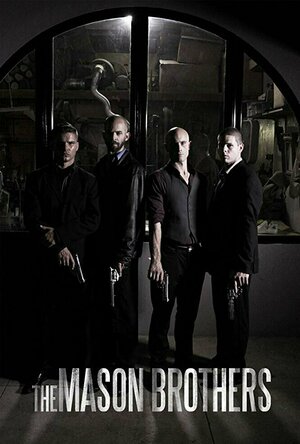Search
BankofMarquis (1832 KP) rated Ava (2020) in Movies
Oct 8, 2020
Great mother/daughter scene in the middle of a generic assassin flick
To give you everything you need to know about the Jessica Chastain assassin flick AVA is to read the IMDB description of the film:
"Ava is a deadly assassin who works for a black ops organization, traveling the globe specializing in high profile hits. When a job goes dangerously wrong she is forced to fight for her own survival."
Pretty generic, right? There are only about a dozen films that I can think of off the top of my head that would fit this description. So...what separates this one to make it worth watching?
Not much.
Chastain stars as Ava, a deadly assassin who...oh, you get it. When the "job goes dangerously wrong", she heads back to Boston and into the arms of her loving family - who want nothing to do with her.
Chastain is good, but nothing special as Ava...she seems to be able to pull off the physicality of this role quite well (like Jennifer Lawrence in RED SPARROW or Charlize Theron in ATOMIC BLONDE). The head of the shadowy organization that Ava works, played by Collin Farrell, is generically shadowy and Farrell plays it professionally with a touch of "over the top" acting (but not too much). The great John Malkovich is a spark of energy in this film as Ava's mentor. Mr. Malkovich, as is his want to do, eats the scenery in every scene that he is in. Under normal circumstances, this would annoying, but in this film, it is welcome. Ioan Gruffudd and Joan Chen show up (briefly) as adversaries of Ava and all of these components makes the "assassin side" of this film work well enough.
The "family side' of this film just doesn't work - except for one scene.
Common is just plain bad in the underwritten role of Ava's former lover who is now married to her sister. Jess Wexler is forgettable as Ava's sister (I even had to look her up on IMDB to remind me of who played this role) and Geena Davis - as Ava's estranged mother - looks like she is just there because she owed someone a favor.
Except for one scene.
And that's the interesting thing about this film. Right in the middle of this very generic, very ordinary film is a "come to Jesus" meeting between Ava (Chastain) and her mother (Davis). This scene was "Oscar worthy" with 2 very good actresses going back and forth with each other (with Davis dominating the scene). I gotta think that this scene was the only one Davis read when she agreed to do this film and was pouting during her other, generic scenes.
Director Tate Taylor (who took over when the original Director was bounced when past sexual indiscretions were unearthed) and writer Matthew Newton bring nothing new to the genre. It is all very...generic. The action scenes are professionally done, but generic. The situations are contrived and...generic. The acting is...scenery chewing generic. The ending is predictably generic.
All-in-all an "entertaining enough" generic action flick - except for that one scene (and maybe Malkovich's performance), they make it worthwhile.
Letter Grade: B
7 stars (out of 10 - it really is a "5", but will add a point for Malkovich and another point for the mother daughter scene). - and you can take that to the Bank (ofMarquis)
"Ava is a deadly assassin who works for a black ops organization, traveling the globe specializing in high profile hits. When a job goes dangerously wrong she is forced to fight for her own survival."
Pretty generic, right? There are only about a dozen films that I can think of off the top of my head that would fit this description. So...what separates this one to make it worth watching?
Not much.
Chastain stars as Ava, a deadly assassin who...oh, you get it. When the "job goes dangerously wrong", she heads back to Boston and into the arms of her loving family - who want nothing to do with her.
Chastain is good, but nothing special as Ava...she seems to be able to pull off the physicality of this role quite well (like Jennifer Lawrence in RED SPARROW or Charlize Theron in ATOMIC BLONDE). The head of the shadowy organization that Ava works, played by Collin Farrell, is generically shadowy and Farrell plays it professionally with a touch of "over the top" acting (but not too much). The great John Malkovich is a spark of energy in this film as Ava's mentor. Mr. Malkovich, as is his want to do, eats the scenery in every scene that he is in. Under normal circumstances, this would annoying, but in this film, it is welcome. Ioan Gruffudd and Joan Chen show up (briefly) as adversaries of Ava and all of these components makes the "assassin side" of this film work well enough.
The "family side' of this film just doesn't work - except for one scene.
Common is just plain bad in the underwritten role of Ava's former lover who is now married to her sister. Jess Wexler is forgettable as Ava's sister (I even had to look her up on IMDB to remind me of who played this role) and Geena Davis - as Ava's estranged mother - looks like she is just there because she owed someone a favor.
Except for one scene.
And that's the interesting thing about this film. Right in the middle of this very generic, very ordinary film is a "come to Jesus" meeting between Ava (Chastain) and her mother (Davis). This scene was "Oscar worthy" with 2 very good actresses going back and forth with each other (with Davis dominating the scene). I gotta think that this scene was the only one Davis read when she agreed to do this film and was pouting during her other, generic scenes.
Director Tate Taylor (who took over when the original Director was bounced when past sexual indiscretions were unearthed) and writer Matthew Newton bring nothing new to the genre. It is all very...generic. The action scenes are professionally done, but generic. The situations are contrived and...generic. The acting is...scenery chewing generic. The ending is predictably generic.
All-in-all an "entertaining enough" generic action flick - except for that one scene (and maybe Malkovich's performance), they make it worthwhile.
Letter Grade: B
7 stars (out of 10 - it really is a "5", but will add a point for Malkovich and another point for the mother daughter scene). - and you can take that to the Bank (ofMarquis)
Kristy H (1252 KP) rated The Banker's Wife in Books
Mar 6, 2019
Great, exciting, tense novel
Annabel Lerner feels isolated in Geneva: she's not like the other bankers' wives, and she rarely sees her husband Matthew anymore. They moved to Geneva for a fresh start--and yes, to take advantage of the salary Matthew's private banking job at Swiss United offered. But Annabel never realized how stressed Matthew would be or how often he'd travel. And then, suddenly, he's gone: his private plane simply falling off the radar over the French Alps. Before she can even understand what's happening, Annabel is left to deal with the aftermath, including a trail of secrets and the powerful men at Swiss United who don't want them exposed. Meanwhile, Marina Tourneau is a reporter for The Press. Her mentor, Duncan Carr, has been chasing a story involving Morty Reiss, whose hedge fund was one of the largest Ponzi scams of all time. Supposedly, before he could get caught, Morty committed suicide. But Duncan and Marina believe Marty faked his death and Duncan has become obsessed with proving it--to the detriment of his health, his reputation, and his career. But Marina is also engaged to Grant Ellis, whose wealthy father, James, is about to run for President. The plan is for Marina to stop writing and stand by her man. But when she suddenly realizes she's on the trail of the story of her career, what will she do?
Well, this turned out to be a gem of a novel. When I first started reading it, I was a little worried that I wouldn't see what the fuss was all about, but things quickly picked up, and I was hooked. One of the best things about this novel is that it's an old-style thriller--it reminded me of old-school Grisham or Stieg Larsson. It even throws shade at the glutton of Girl books and their (annoying) unreliable narrators, which I love. This is a mystery for folks who love real stories without any fuss or distraction and with strong characters--all of which combine to leave you befuddled and anxious as everything slowly unfurls.
Alger takes us into the complicated and dark world of Swiss banking, where we are introduced to a lot of real bad guys who have no morals. You can't trust them, you know they are bad, and you know your heroes and heroines are in true danger. Rarely do I think this while reading a book (because, face it, the book is always better), but I really think this book would *actually* make a great movie. It's exciting and tense, and the way things are slowly revealed would make for a very effective film.
But, anyway, it's a wonderful novel. You quickly get sucked into Annabel and Marina's worlds--the majority of the story is told from their points of view. There's a decent amount of ancillary characters to keep track of, but it's certainly manageable. The best is not knowing who to trust, what to believe, or how things went down. There's that Girl with a Dragon Tattoo-reporting vibe that I love: the pleasure of solving a case. The story is set in 2015 but is completely timely, yet utterly timeless in its essence of greed, money, and fear--and what people do in the name of all three. I just loved the old-fashioned thrill of it, the long list of suspects, the excitement of trying to work out who did what.
Overall, this is just a great novel. The plot is excellent--tense, exciting, and expertly woven together. The characters are strong, but it's really the story that's the standout here. It truly reminds you of mysteries and thrillers of old (I sound ancient here, but whatever). Don't let the banking theme scare you off: this is a fabulous read, and if you're a mystery or thriller fan, I think you'll really enjoy this one. 4+ stars.
I received a copy of this novel from the publisher and Netgalley in return for an unbiased review (thank you!).
Well, this turned out to be a gem of a novel. When I first started reading it, I was a little worried that I wouldn't see what the fuss was all about, but things quickly picked up, and I was hooked. One of the best things about this novel is that it's an old-style thriller--it reminded me of old-school Grisham or Stieg Larsson. It even throws shade at the glutton of Girl books and their (annoying) unreliable narrators, which I love. This is a mystery for folks who love real stories without any fuss or distraction and with strong characters--all of which combine to leave you befuddled and anxious as everything slowly unfurls.
Alger takes us into the complicated and dark world of Swiss banking, where we are introduced to a lot of real bad guys who have no morals. You can't trust them, you know they are bad, and you know your heroes and heroines are in true danger. Rarely do I think this while reading a book (because, face it, the book is always better), but I really think this book would *actually* make a great movie. It's exciting and tense, and the way things are slowly revealed would make for a very effective film.
But, anyway, it's a wonderful novel. You quickly get sucked into Annabel and Marina's worlds--the majority of the story is told from their points of view. There's a decent amount of ancillary characters to keep track of, but it's certainly manageable. The best is not knowing who to trust, what to believe, or how things went down. There's that Girl with a Dragon Tattoo-reporting vibe that I love: the pleasure of solving a case. The story is set in 2015 but is completely timely, yet utterly timeless in its essence of greed, money, and fear--and what people do in the name of all three. I just loved the old-fashioned thrill of it, the long list of suspects, the excitement of trying to work out who did what.
Overall, this is just a great novel. The plot is excellent--tense, exciting, and expertly woven together. The characters are strong, but it's really the story that's the standout here. It truly reminds you of mysteries and thrillers of old (I sound ancient here, but whatever). Don't let the banking theme scare you off: this is a fabulous read, and if you're a mystery or thriller fan, I think you'll really enjoy this one. 4+ stars.
I received a copy of this novel from the publisher and Netgalley in return for an unbiased review (thank you!).

Catholic New American Bible Revised Edition
Reference
App
This iPhone/iPad app has been approved by the United States Conference of Catholic Bishops (USCCB). ...
Rachel King (13 KP) rated A Short History of Myth in Books
Feb 11, 2019
For such a short book, I developed quite a strong opinion about the text while reading it. I have been curious about Armstrong's writings for a long time, but this is the first attempt I have made at actually reading anything by her. I have always been a fan of ancient mythology, such as Greek and Egyptian, so this seemed like an easy choice.
In seven chapters, Armstrong takes a simplified stroll through history, focusing on the concept of myth and its impact on civilization. All throughout the book, she attempts to support her claim that a person can believe in myths without believing that the myths are actually true, and that the failure of modern society is by not following her specific edict. While this notion strikes me as absurd, I keep reading because, hey, it's a short book.
While I know only bits and pieces about many of the world's religions, I do know both the history and the holy book of my religion, Christianity. It becomes apparent to me early in the text that she is masking her opinions and interpretations of this religion as actual fact, so I can only imagine how she misconstrues other religions.
Her citations were lacking to me, with many claims going unsupported, others only partially supported, such as citation #84 and #30, and some citations simply not even applying to the specified text, such as citation #87. In citation #55, she claims that the Bible contains a Creation myth in which God brings the world into being by killing a sea monster, but one of the four verses she cites make no reference to anything of the sort (Job 3:12), and the other three (Isaiah 27:1, Job 26:13, Psalm 74:14) that do mention a leviathan cannot be interpreted that way when read in context. Isaiah is describing the end of days, while Job merely says that God created the serpent, and the verse in Psalm is within the context of a song about God rescuing the Hebrews from Egyptian slavery -- no relevancy to Creation. She makes the claim that Paul "was not much interested in Jesus's teachings, which he rarely quotes, or in the events of his earthly life." This claim is easily disproved by examining how Paul's words line up with Jesus's in John 5:21 vs. 1 Corinthians 15:22, Matthew 6:25 vs. Philippians 4:6, and many other passages.
While going through the citations, I got the feeling that the author depended on secondary sources for her information without actually studying the original source of her information. The book struck me as highly opinionated, vague, and too general for the topic being addressed. I have no doubt that there are better and more thorough books available on the topic of myth. I do not believe that I will be reading any more of Armstrong's works in the future.
In seven chapters, Armstrong takes a simplified stroll through history, focusing on the concept of myth and its impact on civilization. All throughout the book, she attempts to support her claim that a person can believe in myths without believing that the myths are actually true, and that the failure of modern society is by not following her specific edict. While this notion strikes me as absurd, I keep reading because, hey, it's a short book.
While I know only bits and pieces about many of the world's religions, I do know both the history and the holy book of my religion, Christianity. It becomes apparent to me early in the text that she is masking her opinions and interpretations of this religion as actual fact, so I can only imagine how she misconstrues other religions.
Her citations were lacking to me, with many claims going unsupported, others only partially supported, such as citation #84 and #30, and some citations simply not even applying to the specified text, such as citation #87. In citation #55, she claims that the Bible contains a Creation myth in which God brings the world into being by killing a sea monster, but one of the four verses she cites make no reference to anything of the sort (Job 3:12), and the other three (Isaiah 27:1, Job 26:13, Psalm 74:14) that do mention a leviathan cannot be interpreted that way when read in context. Isaiah is describing the end of days, while Job merely says that God created the serpent, and the verse in Psalm is within the context of a song about God rescuing the Hebrews from Egyptian slavery -- no relevancy to Creation. She makes the claim that Paul "was not much interested in Jesus's teachings, which he rarely quotes, or in the events of his earthly life." This claim is easily disproved by examining how Paul's words line up with Jesus's in John 5:21 vs. 1 Corinthians 15:22, Matthew 6:25 vs. Philippians 4:6, and many other passages.
While going through the citations, I got the feeling that the author depended on secondary sources for her information without actually studying the original source of her information. The book struck me as highly opinionated, vague, and too general for the topic being addressed. I have no doubt that there are better and more thorough books available on the topic of myth. I do not believe that I will be reading any more of Armstrong's works in the future.
Hadley (567 KP) rated Soul Drinker in Books
Jul 25, 2020
The writing (2 more)
No character development
No ending
One of the classic horror tropes is Heaven versus Hell, angels versus demons, good versus evil (like a boogeyman versus an innocent child, or a killer versus a group of teenagers, or even an evil spirit versus an exorcist) and we always know how it's going to end: good triumphs evil, every time. Some of the most well known films with this trope are Constantine (2005), the Exorcist (1973) and more recently, Stephen King's IT : Chapter 2 (2019).
That, along with a little romance, mystery, and historical elements make up this novel that features three main characters who are stuck in a struggle between good and evil while having to face mistakes from the past.
Welcome to the hellish world of Soul Drinker by newcomer, Matthew Yard.
Deep description is what makes up Yard's storytelling, so much so that the book is extremely hard to read. Only 132 pages long, Yard spends most paragraphs describing one single thing in many different ways, such as a young woman's hair, which only needs one sentence to tell such a detail, but instead, took an entire paragraph.
During an ancient civilization, a deity appeared named Destroyer, it found a way to break through the boundaries that separates realms and universes - - - finding our realm, Destroyer leaves his son Luther to build powerful followings through cults run by Pagans.
The novel's villain, Luther, isn't present enough to feel like a real threat for the reader. And the three main characters, other than their physical descriptions, are lifeless because of the extreme lack of character development.
Our main character, Devin, is a college student who constantly has nightmares of his best friend's murder. He also lives at house in the woods which he has no idea how he attained it and this is never explained. After Devin and a classmate named Vic have an encounter with a supernatural cloud, they end up at this house, where readers find out that Devin isn't the only one who has been having nightmares.
Vic is a beautiful, young woman, who Devin seems to be enamoured with, but she is still busy getting over her first love. A few chapters in, readers get flashbacks of Vic's father and mother before she was born. Vic's father was also haunted by this supernatural cloud, which seems to have had a tighter grip on him than Vic - - - her father's flashbacks are the most interesting part of this story.
Vic's father, Jacob, is fast asleep next to his wife when a giant face wakes him up, telling him that there is work to do. Jacob follows the face out into the hallway, when it begins to sway, as if through the eyes of a drunk. Jacob fights the urge to continue to the stairs, wanting to turn back and protect his sleeping wife.
A little while later, we find out that Jacob is psychic: he can see the dead and/or the past. But for anymore development on that interesting piece of information, readers get one glimpse of what Jacob sees - - - and that's it. Jacob's wife, Nina, is an even flatter character, which we only get to see in bed either asleep or waking up. Even Jacob's mental and spiritual fight with the 'face' is disappointingly short with no real tension, no climax, or feelings of betrayal when something finally happens in the end of that scene.
Love, the supernatural, and Pagan cults are what make up the plot of this book. The story jumps between Devin, Vic and Jacob, but the story gets caught up in moments that shouldn't be more than a paragraph, which caused me to become bored with the story. And Yard's writing made this book read like a fan fiction: a lot of inconsistencies throughout, tons of misspellings, and a major overuse of the same words, sometimes even in the same sentence.
Unfortunately, this book was almost unreadable, and the heavy descriptions were extremely off-putting, as was the end of the story- - - the book ended suddenly, and with no sequel in sight. I can't recommend this book to anyone.
That, along with a little romance, mystery, and historical elements make up this novel that features three main characters who are stuck in a struggle between good and evil while having to face mistakes from the past.
Welcome to the hellish world of Soul Drinker by newcomer, Matthew Yard.
Deep description is what makes up Yard's storytelling, so much so that the book is extremely hard to read. Only 132 pages long, Yard spends most paragraphs describing one single thing in many different ways, such as a young woman's hair, which only needs one sentence to tell such a detail, but instead, took an entire paragraph.
During an ancient civilization, a deity appeared named Destroyer, it found a way to break through the boundaries that separates realms and universes - - - finding our realm, Destroyer leaves his son Luther to build powerful followings through cults run by Pagans.
The novel's villain, Luther, isn't present enough to feel like a real threat for the reader. And the three main characters, other than their physical descriptions, are lifeless because of the extreme lack of character development.
Our main character, Devin, is a college student who constantly has nightmares of his best friend's murder. He also lives at house in the woods which he has no idea how he attained it and this is never explained. After Devin and a classmate named Vic have an encounter with a supernatural cloud, they end up at this house, where readers find out that Devin isn't the only one who has been having nightmares.
Vic is a beautiful, young woman, who Devin seems to be enamoured with, but she is still busy getting over her first love. A few chapters in, readers get flashbacks of Vic's father and mother before she was born. Vic's father was also haunted by this supernatural cloud, which seems to have had a tighter grip on him than Vic - - - her father's flashbacks are the most interesting part of this story.
Vic's father, Jacob, is fast asleep next to his wife when a giant face wakes him up, telling him that there is work to do. Jacob follows the face out into the hallway, when it begins to sway, as if through the eyes of a drunk. Jacob fights the urge to continue to the stairs, wanting to turn back and protect his sleeping wife.
A little while later, we find out that Jacob is psychic: he can see the dead and/or the past. But for anymore development on that interesting piece of information, readers get one glimpse of what Jacob sees - - - and that's it. Jacob's wife, Nina, is an even flatter character, which we only get to see in bed either asleep or waking up. Even Jacob's mental and spiritual fight with the 'face' is disappointingly short with no real tension, no climax, or feelings of betrayal when something finally happens in the end of that scene.
Love, the supernatural, and Pagan cults are what make up the plot of this book. The story jumps between Devin, Vic and Jacob, but the story gets caught up in moments that shouldn't be more than a paragraph, which caused me to become bored with the story. And Yard's writing made this book read like a fan fiction: a lot of inconsistencies throughout, tons of misspellings, and a major overuse of the same words, sometimes even in the same sentence.
Unfortunately, this book was almost unreadable, and the heavy descriptions were extremely off-putting, as was the end of the story- - - the book ended suddenly, and with no sequel in sight. I can't recommend this book to anyone.
Mandy and G.D. Burkhead (26 KP) rated Hottest Blood: The Ultimate in Erotic Horror in Books
May 20, 2018
Shelf Life – Hottest Blood: The Ultimate in Erotic Horror is Neither of Those Things
(I’m gonna go ahead and throw a disclaimer on up here: You are about to read something that deals with purportedly “erotic” subject matter. If you don’t like the sound of that word, you might wanna go elsewhere. If it’s actually-erotic things that offend you, though, you’ll be fine.)
I like short story compilations because you get a variety of content that’s just as easy to breeze through if you have the time as it is to get to a stopping point and put down if you don’t. I like horror fiction because it usually involves the super-natural, which interests me, and intense emotional responses, which are almost always a good thing in writing. And I like eroticism because I am a warm-blooded human being with a pulse. However, on the whole, I do not like Hottest Blood.
I wanted to, I did. Look at that cover. It’s equal amounts scary and sexy, both in completely safe, PG-13-at-most kind of ways. Unfortunately, Softcore Succubus here is both the scariest and the sexiest thing about this book
Bluntly analogized, you know that feeling you get when you come across something on the internet that disturbs and/or disgusts you, and then you learn that there’s a dedicated group of people that gets off on it? Most of the stories in this book are that feeling captured in words.
Case in point, the story “Damaged Goods” by Elizabeth Massie, which as far as I can tell is about a couple of physically abused, emotionally damaged, developmentally stunted kids somewhere around their early teens who live with a religious fringe cult being led out to a field to have sex with each other while a nameless U.S. President watches and masturbates before both kids are drowned in a river by their preacher/pimp caretaker.
Or there’s “Mr. Right” by Chris Lacher, which tells the story of a college student named Russ who has a secret fetish for the deformed women in the freak show at a nearby carnival – a fascination which leads to him getting held down and forcibly raped by a group of unwashed subhuman mutants, which the detailed descriptions make sure you understand are completely revolting to all five senses. The story ends with him being dumped out behind the fairgrounds while a small, legless girl happily informs him that this is how all carnival workers reproduce, and he can look forward to seeing his own mutant rape-spawn in the show next year.
Or there’s “Abuse” by Matthew Costello, which simply shows us how the arrest of a Peewee Herman surrogate goes down in an adult movie theater before ending with another man jerking off with the cold, dry, severed hand in his pocket as he contemplates getting a new one to replace it.
The tone of these three are pretty much par for the course for the rest of the book: thoroughly disturbing, and sex is involved, but the disturbing feeling stems from revulsion rather than fear, and the sex bits are so far on the other end of the spectrum from erotic that it feels like the authors are trying to punish their readers for even expecting to be aroused in any way.
Of course, I said myself earlier that intense emotional responses are “almost always a good thing in writing.” By that merit alone, this book technically succeeds; in fact, if it had billed itself as shock fiction instead of erotic horror, I’d begrudgingly give it a medal in its class. The “aw, what the hell?!” moments are not as artistically executed as, say, a Chuck Palahniuk read, and they tend not to have as much depth to them, but strictly in terms of making you wish that you could unread words, they get the job done.
But that isn’t the job that Hottest Blood was hired to do, and that’s not what it put on its resume. It said it was going to “heat the blood and chill the mind,” and promised that “terror never felt this sexy!” It would have been more appropriate to say that “sex never felt this terrible.”
All of that said, if you abandon any hope of seeing anything resembling erotica or horror (scary horror, anyway), there are a few stories in here that are decent reads – mostly because they try to say something with their subject matter rather than use it to see how thoroughly they can ruin the idea of sex for the reader. To give a few quick nods of approval:
Nancy Holder’s “I Hear the Mermaids Singing,” which opens the anthology, is a dark and modern re-imagining of “The Little Mermaid” that brutally points up the drawbacks to throwing away your whole life and family in order to pursue someone that you know nothing about outside of a few fleeting glimpses and lustful inner fantasies.
J.L. Comeau’s “Black Cars” is the narrative of a high-class chauffeur as he tells his passenger an increasingly mysterious story about a couple of his regular customers, culminating in a creepy twist payoff that, in retrospect, actually makes it count as a legitimate horror story, and a decently gripping one at that.
And “Safe at Home” by Steve and Melanie Tem, while decidedly and disturbingly unsexy, at least has good reason to be; it’s a short character study of a young woman who’d been molested as a child, and the lasting and complex psychological damage resulting thereof that prevents her from having any normal social life or relationships, even with someone whom she legitimately likes, someone who knows what’s happened and sincerely cares for her.
So for the handful of intriguing stories that don’t make you quit (or wish you had) mid-read out of revolted disappointment, I can’t completely condemn Hottest Blood. If you want to test your own threshold for repulsion but are understandably hesitant to use online image searches to this end, I heartily recommend it.
If you are legitimately turned on by the idea of a man eating a woman alive and then gestating her alien spawn inside his own bloated body until his head detaches and crawls away (“How Deep the Taste of Love,” John Shirley), I suppose I still heartily recommend it, though I do so from a safe distance.
If you want to read one of the few stories involved that aren’t horrible, I heartily recommend trying to find them on their own somewhere else first.
But if you want “the ultimate in erotic horror,” stay the hell away. Softcore Succubus is a trap.
I like short story compilations because you get a variety of content that’s just as easy to breeze through if you have the time as it is to get to a stopping point and put down if you don’t. I like horror fiction because it usually involves the super-natural, which interests me, and intense emotional responses, which are almost always a good thing in writing. And I like eroticism because I am a warm-blooded human being with a pulse. However, on the whole, I do not like Hottest Blood.
I wanted to, I did. Look at that cover. It’s equal amounts scary and sexy, both in completely safe, PG-13-at-most kind of ways. Unfortunately, Softcore Succubus here is both the scariest and the sexiest thing about this book
Bluntly analogized, you know that feeling you get when you come across something on the internet that disturbs and/or disgusts you, and then you learn that there’s a dedicated group of people that gets off on it? Most of the stories in this book are that feeling captured in words.
Case in point, the story “Damaged Goods” by Elizabeth Massie, which as far as I can tell is about a couple of physically abused, emotionally damaged, developmentally stunted kids somewhere around their early teens who live with a religious fringe cult being led out to a field to have sex with each other while a nameless U.S. President watches and masturbates before both kids are drowned in a river by their preacher/pimp caretaker.
Or there’s “Mr. Right” by Chris Lacher, which tells the story of a college student named Russ who has a secret fetish for the deformed women in the freak show at a nearby carnival – a fascination which leads to him getting held down and forcibly raped by a group of unwashed subhuman mutants, which the detailed descriptions make sure you understand are completely revolting to all five senses. The story ends with him being dumped out behind the fairgrounds while a small, legless girl happily informs him that this is how all carnival workers reproduce, and he can look forward to seeing his own mutant rape-spawn in the show next year.
Or there’s “Abuse” by Matthew Costello, which simply shows us how the arrest of a Peewee Herman surrogate goes down in an adult movie theater before ending with another man jerking off with the cold, dry, severed hand in his pocket as he contemplates getting a new one to replace it.
The tone of these three are pretty much par for the course for the rest of the book: thoroughly disturbing, and sex is involved, but the disturbing feeling stems from revulsion rather than fear, and the sex bits are so far on the other end of the spectrum from erotic that it feels like the authors are trying to punish their readers for even expecting to be aroused in any way.
Of course, I said myself earlier that intense emotional responses are “almost always a good thing in writing.” By that merit alone, this book technically succeeds; in fact, if it had billed itself as shock fiction instead of erotic horror, I’d begrudgingly give it a medal in its class. The “aw, what the hell?!” moments are not as artistically executed as, say, a Chuck Palahniuk read, and they tend not to have as much depth to them, but strictly in terms of making you wish that you could unread words, they get the job done.
But that isn’t the job that Hottest Blood was hired to do, and that’s not what it put on its resume. It said it was going to “heat the blood and chill the mind,” and promised that “terror never felt this sexy!” It would have been more appropriate to say that “sex never felt this terrible.”
All of that said, if you abandon any hope of seeing anything resembling erotica or horror (scary horror, anyway), there are a few stories in here that are decent reads – mostly because they try to say something with their subject matter rather than use it to see how thoroughly they can ruin the idea of sex for the reader. To give a few quick nods of approval:
Nancy Holder’s “I Hear the Mermaids Singing,” which opens the anthology, is a dark and modern re-imagining of “The Little Mermaid” that brutally points up the drawbacks to throwing away your whole life and family in order to pursue someone that you know nothing about outside of a few fleeting glimpses and lustful inner fantasies.
J.L. Comeau’s “Black Cars” is the narrative of a high-class chauffeur as he tells his passenger an increasingly mysterious story about a couple of his regular customers, culminating in a creepy twist payoff that, in retrospect, actually makes it count as a legitimate horror story, and a decently gripping one at that.
And “Safe at Home” by Steve and Melanie Tem, while decidedly and disturbingly unsexy, at least has good reason to be; it’s a short character study of a young woman who’d been molested as a child, and the lasting and complex psychological damage resulting thereof that prevents her from having any normal social life or relationships, even with someone whom she legitimately likes, someone who knows what’s happened and sincerely cares for her.
So for the handful of intriguing stories that don’t make you quit (or wish you had) mid-read out of revolted disappointment, I can’t completely condemn Hottest Blood. If you want to test your own threshold for repulsion but are understandably hesitant to use online image searches to this end, I heartily recommend it.
If you are legitimately turned on by the idea of a man eating a woman alive and then gestating her alien spawn inside his own bloated body until his head detaches and crawls away (“How Deep the Taste of Love,” John Shirley), I suppose I still heartily recommend it, though I do so from a safe distance.
If you want to read one of the few stories involved that aren’t horrible, I heartily recommend trying to find them on their own somewhere else first.
But if you want “the ultimate in erotic horror,” stay the hell away. Softcore Succubus is a trap.
365Flicks (235 KP) rated The Mason Brothers (2017) in Movies
Nov 20, 2019
It has been some time since I sat down to watch a good heist movie, so when I received The Mason Brothers and read things like ‘Inspired by films like The Untouchables and Reservoir Dogs’ well call me an old romantic for those films in particular but I will give this one a shot for sure.
I’m going to put something right on front street when it comes to this movie. When it says inspired by Reservoir Dogs it means inspired by… However as my esteemed podcast co-host said “there are worse movies to be inspired by”.
The Mason Brothers is the story of a group of Bank Robbers who as you may imagine are also brothers. We join the crew right after a heist has just gone really wrong and we witness the aftermath where one of the brothers dies. We then spend the night with the other 3 as they hide out waiting for an associate to track down the members of the other crew who screwed them over. The story is given to us in present time and flashbacks, so as the night unfolds and we start to find out who exactly set the guys up, caused there brother to die and wants the cash for themselves. Meanwhile via flashbacks we find out how they planned the job, who they cut into the deal and motivations for why and who did this to the brothers. That about covers it…. Obviously there are twisty turn-y things but hey No Spoilers here.
Keith Sutliff in his Directorial debut has hit upon something great here. He has assembled a good cast with some great chemistry and like most first time directors even throws himself into the mix on acting duties. Sutliff has a real flair for dialogue and it flows throughout. Sometimes screaming ‘you do love a Tarantino flick, dont you!!’ but at the same time freshening up a genre that often feels stale. I was real impressed with this as a Debut movie because it looks great has some real interesting choices with the editing and camera work but everything fits and the movie never loses sight of itself.
Quick word on the cast. As stated Sutliff plays brother Ren Mason, the planner, the mastermind and the strong silent type. Brandon Sean Pearson plays Jesse Mason the full blooded aggravated hot head of the crew. Personally I thought Pearson was the shining light of this Flick. Matthew Webb is Gage, a member of the group but not actually a Mason, I thought right the way through Gage was a wild card and I like to think that was a conscious decision. Rounding off the team is Micheal Ryan Whelan as Orion Mason who we only really see during the flashbacks but has some great little monologue-y scenes. Other supporters include Julien Cesario (Sons of Anarchy), Tim Park (Matador, Sons of Anarchy) and Nazo Bravo (Vigilante Diaries).
Yeah I would say this is a recommend from us here, The script is nice and wordy (something I love) the core cast all deliver in a pretty well paced heist movie gone wrong.
I’m going to put something right on front street when it comes to this movie. When it says inspired by Reservoir Dogs it means inspired by… However as my esteemed podcast co-host said “there are worse movies to be inspired by”.
The Mason Brothers is the story of a group of Bank Robbers who as you may imagine are also brothers. We join the crew right after a heist has just gone really wrong and we witness the aftermath where one of the brothers dies. We then spend the night with the other 3 as they hide out waiting for an associate to track down the members of the other crew who screwed them over. The story is given to us in present time and flashbacks, so as the night unfolds and we start to find out who exactly set the guys up, caused there brother to die and wants the cash for themselves. Meanwhile via flashbacks we find out how they planned the job, who they cut into the deal and motivations for why and who did this to the brothers. That about covers it…. Obviously there are twisty turn-y things but hey No Spoilers here.
Keith Sutliff in his Directorial debut has hit upon something great here. He has assembled a good cast with some great chemistry and like most first time directors even throws himself into the mix on acting duties. Sutliff has a real flair for dialogue and it flows throughout. Sometimes screaming ‘you do love a Tarantino flick, dont you!!’ but at the same time freshening up a genre that often feels stale. I was real impressed with this as a Debut movie because it looks great has some real interesting choices with the editing and camera work but everything fits and the movie never loses sight of itself.
Quick word on the cast. As stated Sutliff plays brother Ren Mason, the planner, the mastermind and the strong silent type. Brandon Sean Pearson plays Jesse Mason the full blooded aggravated hot head of the crew. Personally I thought Pearson was the shining light of this Flick. Matthew Webb is Gage, a member of the group but not actually a Mason, I thought right the way through Gage was a wild card and I like to think that was a conscious decision. Rounding off the team is Micheal Ryan Whelan as Orion Mason who we only really see during the flashbacks but has some great little monologue-y scenes. Other supporters include Julien Cesario (Sons of Anarchy), Tim Park (Matador, Sons of Anarchy) and Nazo Bravo (Vigilante Diaries).
Yeah I would say this is a recommend from us here, The script is nice and wordy (something I love) the core cast all deliver in a pretty well paced heist movie gone wrong.

The Nantucket Beachfront Inn (Sconset Beach #1)
Book
She's 54, broken-hearted, and starting over.... High-powered New York attorney Ava Flynn finds...
Contemporary Women's Fiction
Gareth von Kallenbach (980 KP) rated What to Expect When You're Expecting (2012) in Movies
Aug 7, 2019
First off, a disclaimer: I have not read the book What to Expect When You’re Expecting; nor do I have any kids of my own. That being said….
This film shows you five different stories that are not all connected, but they do intersect each other’s paths several times. The stories follow different scenarios that you can expect when you, as a couple, are expecting a baby. These five stories are the easy pregnancy, the difficult on the woman’s body pregnancy, the difficult on the relationship pregnancy, the miscarriage and the adoption.
The film has a stellar lineup for the cast. Cameron Diaz (There’s Something About Mary, Bad Teacher) plays celebrity Jules who is on a Dancing-with-the-Stars-esque show, who ends up in a relationship with her dance partner Evan, played by Matthew Morrison (Glee, Music and Lyrics). Elizabeth Banks (Zack and Miri, The Hunger Games) is Wendy, the owner of a baby store and author of a baby’s book who has been desperately trying to get pregnant with her husband Gary played by Ben Falcone (Bridesmaids). Anna Kendrick (Scott Pilgrim vs. The World, Up In The Air) is Rosie, the owner of a food truck who has a one-night stand with high school crush Marco, played by Chace Crawford (The Covenant, Gossip Girl). Jennifer Lopez (American Idol, Out of Sight) is Holly, a photographer who is attempting to go the Brangelina route by adopting a baby from Ethiopia with her husband Alex, played by Rodrigo Santoro (300, I Love You Phillip Morris). Lastly, we have Skyler who is portrayed by Brooklyn Decker (Just Go With It, Battleship). She is a stay-at-home wife married to retired NASCAR driver Ramsey, who is played by Dennis Quaid (The Day After Tomorrow, Vantage Point).
Aside from the main cast, there is also a great supporting cast with the likes of Chris Rock (Grown Ups, Death At A Funeral), Joe Manganiello (True Blood), Thomas Lennon (Reno 911, I Love You, Man), Rebel Wilson (Bridesmaids) and many more.
Based on the trailers for What to Expect When You’re Expecting, the movie looked to be a very promising comedy. I am sad to say, I was very disappointed. The trailers make it look like “The Dudes Group” is a main focus of the story, but it is only a reprieve from the main story lines. This is a shame because for me, “The Dudes Group” had the funniest moments in the movie. The rest of the film, while heart-warming at moments, seemed to lack any real attempt to make a connection with the audience. To me, the relationships just seemed unreal.
This is not to say that there are not those out there who will not enjoy the film. The ladies behind me in the theatre seemed to be laughing the whole time, but it just wasn’t my cup of tea. I once heard my editor (Gareth Von Kallenbach) say that this was a great idea, but it may have been better presented as a TV show. I have to say that I agree whole-heartedly. It would have made a great weekly sitcom, probably with the series centered on “The Dudes Group” (as I said, funniest moments in the movies). But it looks like there may be something along these lines on the horizon any way with the upcoming NBC comedy: Guys With Kids.
This film shows you five different stories that are not all connected, but they do intersect each other’s paths several times. The stories follow different scenarios that you can expect when you, as a couple, are expecting a baby. These five stories are the easy pregnancy, the difficult on the woman’s body pregnancy, the difficult on the relationship pregnancy, the miscarriage and the adoption.
The film has a stellar lineup for the cast. Cameron Diaz (There’s Something About Mary, Bad Teacher) plays celebrity Jules who is on a Dancing-with-the-Stars-esque show, who ends up in a relationship with her dance partner Evan, played by Matthew Morrison (Glee, Music and Lyrics). Elizabeth Banks (Zack and Miri, The Hunger Games) is Wendy, the owner of a baby store and author of a baby’s book who has been desperately trying to get pregnant with her husband Gary played by Ben Falcone (Bridesmaids). Anna Kendrick (Scott Pilgrim vs. The World, Up In The Air) is Rosie, the owner of a food truck who has a one-night stand with high school crush Marco, played by Chace Crawford (The Covenant, Gossip Girl). Jennifer Lopez (American Idol, Out of Sight) is Holly, a photographer who is attempting to go the Brangelina route by adopting a baby from Ethiopia with her husband Alex, played by Rodrigo Santoro (300, I Love You Phillip Morris). Lastly, we have Skyler who is portrayed by Brooklyn Decker (Just Go With It, Battleship). She is a stay-at-home wife married to retired NASCAR driver Ramsey, who is played by Dennis Quaid (The Day After Tomorrow, Vantage Point).
Aside from the main cast, there is also a great supporting cast with the likes of Chris Rock (Grown Ups, Death At A Funeral), Joe Manganiello (True Blood), Thomas Lennon (Reno 911, I Love You, Man), Rebel Wilson (Bridesmaids) and many more.
Based on the trailers for What to Expect When You’re Expecting, the movie looked to be a very promising comedy. I am sad to say, I was very disappointed. The trailers make it look like “The Dudes Group” is a main focus of the story, but it is only a reprieve from the main story lines. This is a shame because for me, “The Dudes Group” had the funniest moments in the movie. The rest of the film, while heart-warming at moments, seemed to lack any real attempt to make a connection with the audience. To me, the relationships just seemed unreal.
This is not to say that there are not those out there who will not enjoy the film. The ladies behind me in the theatre seemed to be laughing the whole time, but it just wasn’t my cup of tea. I once heard my editor (Gareth Von Kallenbach) say that this was a great idea, but it may have been better presented as a TV show. I have to say that I agree whole-heartedly. It would have made a great weekly sitcom, probably with the series centered on “The Dudes Group” (as I said, funniest moments in the movies). But it looks like there may be something along these lines on the horizon any way with the upcoming NBC comedy: Guys With Kids.

Haiti Glass
Book
Winner of the 2015 PEN Oakland Josephine Miles Literary Award In her debut collection of verse and...






